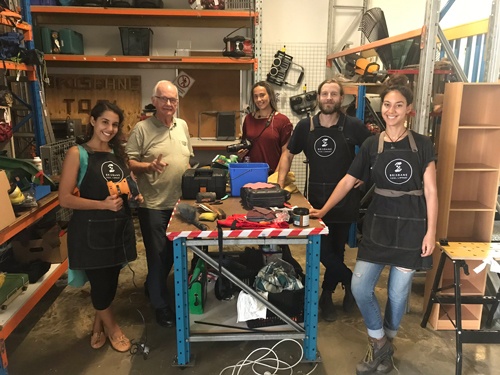I’m Sabrina Chakori, founder of the Brisbane Tool Library and PhD candidate at the University of Queensland. My research looks at curbing food packaging by rethinking food systems in a degrowth economy. My work as academic, social entrepreneur and activist aims at redesigning society for a postgrowth future.
What inspired you to create the tool library?
We are facing complex interlinked social and ecological challenges and I wanted to create something that could tackle both these aspects, something that would contribute to a new degrowth economy. I’m convinced that communities are the primary agent of change in society, and by starting the Brisbane Tool Library, my goal was to redesign social structures that would enable people to share more by borrowing various items.
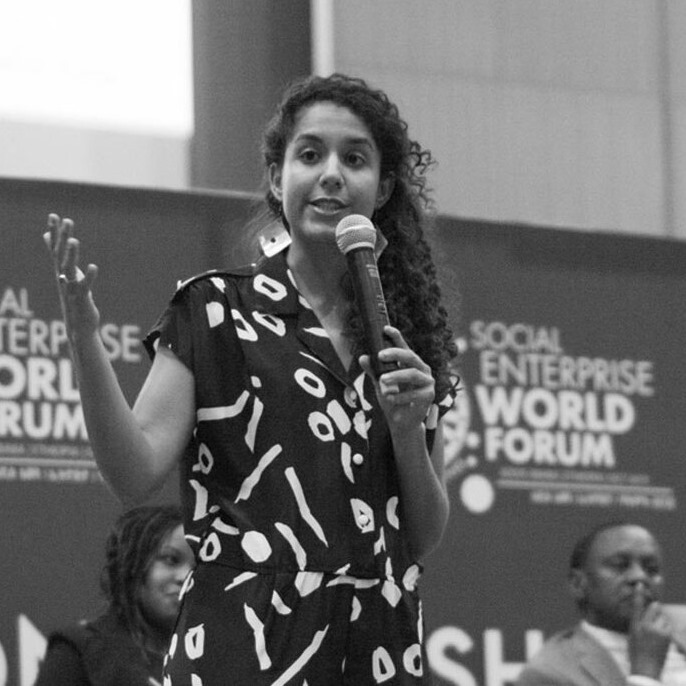
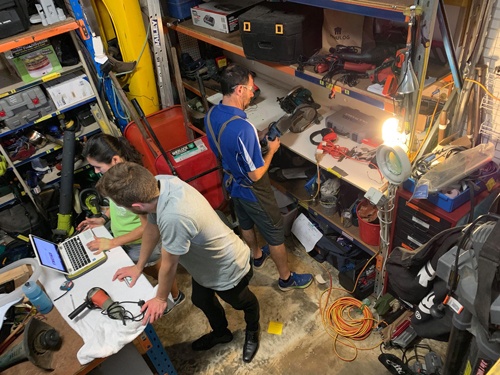
What was the most challenging aspect of setting up the library?
When I started the Brisbane Tool Library, the concept of a ‘library of things’ was new in Australia. Therefore, we had to gain community’s and local authorities’ trust. As with every social enterprise, we encountered several obstacles, but we always overcame them. The major challenge for projects like ours remains to find affordable or free spaces in the city for the community. Brisbane is suffering from fast gentrification, particularly in West End, which was the suburb in which we started. Since 2018, we have been located at the State Library of Queensland, which has been a crucial step that supported our tool library. Modern cities are designed around banks and big corporations and, unfortunately, small and medium businesses struggle. If our cities prioritised local small and medium businesses and social enterprises, we would see unique cities and resilient communities. We need to rethink and redesign spaces in urban areas.
Why are tool libraries so good?
By borrowing, and not buying new things, people reduce their ecological footprint. As applied by tool libraries, sharing schemes allow to reduce the use of natural resources and waste production. Moreover, tool libraries enable people to save money and space in their homes, because with just one affordable membership, they can borrow thousands of items all year long.
Besides, operating from a physical space (and not being a simple phone app), the Brisbane Tool Library aims at reclaiming back a community-driven circular economy by reclaiming back spaces in the city. In the current digital world, recreating a community around shared resources in a physical space is an important aspect that keeps vibrant and sustainable neighbourhoods alive. Finally, tool libraries could reduce inequalities by offering equal access to everyone and breaking the relationship between ‘social status’ and ownership.
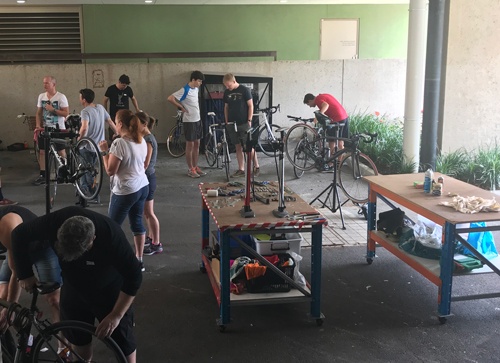
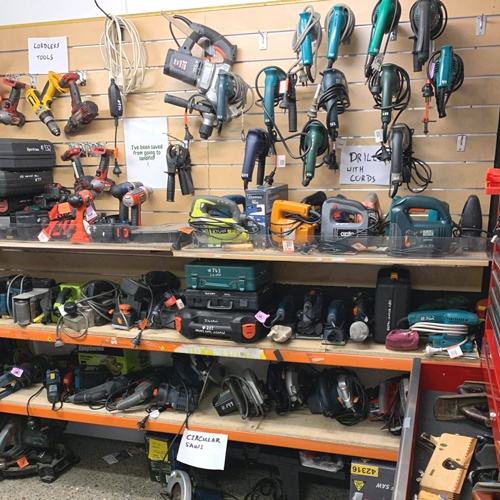
What is your hope for the library in the future?
We need to explore different ways to share resources in order to respect the ecological limits of this planet. I would love to see tool libraries incorporated ino the public library system so that every council would have one. Accessing and borrowing items would help to transition away from our production and consumption-driven culture.
How do you think your studies and life experiences have helped you in creating this valuable asset for the community?
My personal experiences have undoubtedly impacted my way of thinking and actions, but I think that there is much more to it. My generation, I’m 28 years old, is seen as ‘passionate’ about social and ecological projects, but I honestly don’t think that we are simply passionate. I’m convinced that we have inherited a sick planet with many social and environmental challenges, and we simply have the responsibility to act upon these issues. It’s not passion, it’s a responsibility, especially if we are privileged enough to be able to change the system. Therefore, my studies and projects are canalised towards building a more socially just and ecologically sustainable degrowth (postgrowth) society.
How do you see the future of the ‘circular economy’?
Unfortunately, the term circular economy is becoming a ‘greenwashing’ word used too often to indicate any sort of ‘sustainable’ project. For example, I don’t consider recycling or post-consumer waste management as part of the circular economy. These practices have been around for decades (sometimes with limited success). Moreover, this term is increasingly being used by profit-driven corporations to improve their brands’ perception.
Instead of focusing merely on the materials used, a circular economy should question why we need to produce, what for and for who. Sharing and reusing should be prioritised over recycling. In general, we should redesign social structures to implement a new type of economy that goes beyond productivism and consumerism. A circular economy could help re-localise the economy, create meaningful jobs and keep materials in circulation, while nurturing human connections.
What are your top tips to help others live a more sustainable lifestyle?
Fulfilling our lives with experiences and people, rather than with items, would probably be the most impactful way to shift us away from the productivist-consumerist driven system. There are way too many books, websites, etc. that list all the tips that can be implemented in your ‘personal’ life. I would like to highlight a different way to achieve sustainability. The neoliberal system (and culture) leads us to think that we need to individually tackle the social and ecological problems, by for example, living a fully sustainable lifestyle. This is not always possible under the current pressure of the system. Obviously, none of us can change the system alone. The amplitude of the issues (e.g. climate change, inequality) can be overwhelming, resulting in people feeling powerless. I think that my only suggestion is to try to recreate a community (in your city, in your street, with your friends) around any type of issue and tackle them with collective and coordinated actions.
What advice would you give to young Queenslanders hoping to make an impact to causes that are important to them?
Let’s all re-learn to collaborate properly. Let’s get organised! As mentioned, recreating a community around a cause is an effective way to change the system.
We are on Facebook and Instagram (Brisbane Tool Library); Twitter (@briztoollibrary) and LinkedIn (Brisbane Tool Library).
